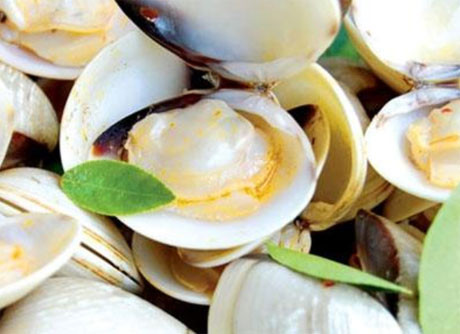People with gout should not eat clams.
Clams are a food with high nutritional value and are easy to incorporate into everyday cooking. However, in a family with many people of different ages and medical conditions, is it possible to eat dishes made from clams together?
According to Dr. Phan Bich Nga, National Institute of Nutrition, clams are one of the highly recommended seafood. Clams contain vitamin B12 which is especially good for memory and vitamin C which helps heal wounds. In addition, with important minerals such as iron, potassium, calcium, clams also help improve health and prevent disease.
Illustration photo
Along with crab, shrimp, and fish, clams are one of the richest food sources of selenium. Selenium is an essential nutrient that works with other nutrients to combat oxidative stress – an imbalance that leads to bone and joint damage.
Clams also help with digestive problems and increase appetite. Nutrition in clams also participates in many metabolic reactions in the body. It is also a factor that helps children grow taller.
In addition, clams contain a relatively high protein content, so they are very nutritious for growing children and people who need to eat high amounts of protein to recover after illness and strengthen the immune system.
However, because clams are a high-protein food, they are also high in purines, so it is recommended that people with gout or a history of gout should not eat too much of them.
According to Hanoimoi - LY






